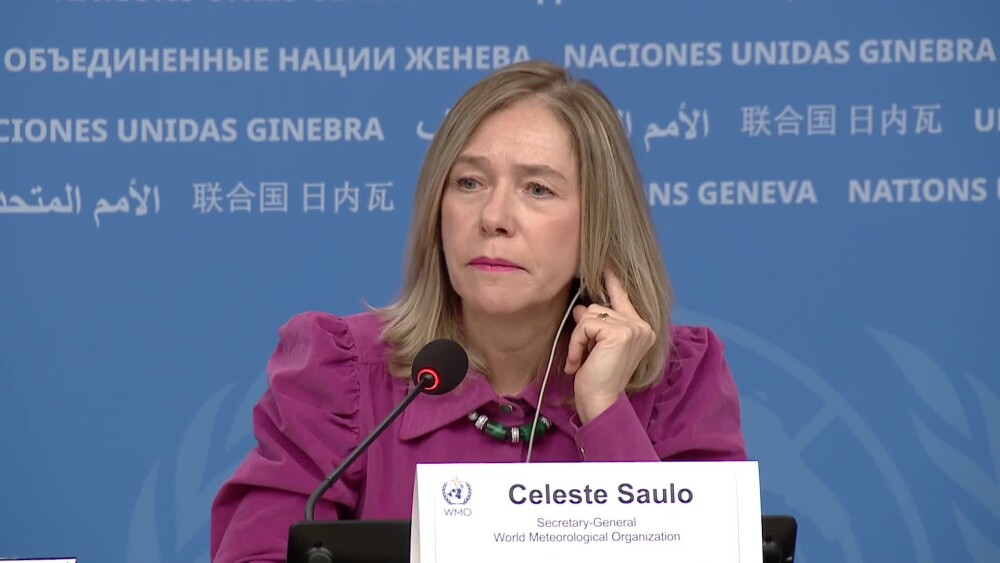“This Impact Bond will increase internationally shared data five-fold, strengthening the world’s ability to forecast and prepare for extreme weather and climate hazards. Studies show that closing the data gap could generate USD 5 billion in direct annual benefits and unlock USD160 billion in wider economic gains,” said WMO Secretary-General Celeste Saulo
Belém, Brazil: The Systematic Observations Financing Facility (SOFF) today opened for contributions to raise USD 200 million towards a climate impact bond aimed at strengthening systematic observation of the planet and help close critical weather and climate data gaps.
The Systematic Observation Impact Bond will be announced as part of the COP30 Action Agenda, supported by the Government of Brazil as COP30 Presidency. If backed, the bond would enable 30 Least Developed Countries (LDCs) and Small Island Developing States (SIDS) to meet the requirements of the Global Basic Observing Network (GBON) — the international standard for the weather and climate observations that underpin every forecast, climate action, and early warning system.
Sustainable financing is one of the main barriers to the maintenance of early warning systems and observation, which are essential to prepare for and respond to climate hazards. The innovative tool is pioneered by the Systematic Observations Financing Facility (SOFF), a United Nations fund created by the UN Environment Programme (UNEP), the World Meteorological Organization (WMO) and the United Nations Development Programme (UNDP).
“This Impact Bond will increase internationally shared data five-fold, strengthening the world’s ability to forecast and prepare for extreme weather and climate hazards. Studies show that closing the data gap could generate USD 5 billion in direct annual benefits and unlock USD160 billion in wider economic gains,” said WMO Secretary-General Celeste Saulo.
“If we fail to close the adaptation and data gap now, we are simply locking in far higher costs and risks for the future. This proposed bond shows how public and private finance could unite to support resilience and safeguard lives in a changing climate,” said Inger Andersen, UNEP’s Executive Director.
With the structuring options already designed, ongoing technical preparation is focusing on identifying suitable issuers and partners to enable the bond’s launch and implementation.
Innovating climate finance
The Systematic Observation Impact Bond combines speed, accountability and partnership for the delivery of a global public good. It could catalyze rapid action through capital frontloaded by investors, supported by long-term donor commitments. Contributions will be tied to independently verified results — confirmed by WMO through the increase in internationally shared weather and climate data. The bond will be built on a broad coalition of governments, development agencies, philanthropies, and businesses.
“UNDP’s partnership with SOFF in countries such as Rwanda shows how vital planetary observations are to protecting people and economies,” said Haoliang Xu, UNDP Acting Administrator. “This new Systematic Observation Impact Bond could ease climate financing bottlenecks and help countries access finance faster. It will accelerate installations of weather stations and contribute to the efforts to strengthen resilience where it’s needed most.”
“This bond will change how climate finance is provided for systematic observation, which is a critical element of the Paris Agreement,” said Markus Repnik, SOFF Director. “It will accelerate funding for countries ready to act and guarantees measurable results — more data leading to better forecasts and stronger resilience.”
A showcase of the COP30 Action Agenda
The Systematic Observation Impact Bond embodies the COP30 Presidency’s vision of a Multirão — a collective global effort to deliver tangible progress through solidarity and innovation.
“When a storm hits, or a drought creeps in, the difference between chaos and control often comes down to one thing: whether we saw it coming. Every farmer’s forecast, every early warning system, every national plan depends on that information,” said Dan Ioschpe, COP30 High-Level Champion. “This Impact Bond is a perfect example of a tangible finance solution coming out of the COP30 Action Agenda — a way to help level the playing field.”
Delivering global dividends
Closing the essential weather and climate data gap in Least Developed Countries and Small Island States can reduce errors in weather forecasts by 30 per cent in Africa and 20 per cent in the Pacific, according to a study by the European Centre for Medium-Range Weather Forecasts (ECMWF). The impact will be both local and global. Additional internationally shared data improves local forecasts within 12 hours and forecasts across the globe within three to four days. Better data means better preparedness, allowing countries to save lives and safeguard livelihoods.
“All Small Island Developing States need more than promises — we need real financial solutions to strengthen our weather and climate observation systems. – said Michai Roberts, Senior Advisor on Finance at the Alliance of Small Islands States (AOSIS) – This is vital for our resilience but also an extremely valuable global contribution. Observations from island states fill global data blind spots and improve forecasts across the globe.”
According to the World Bank, closing the global basic weather and climate data gap could generate USD 5 billion in direct annual benefits and unlock USD 160 billion in wider economic gains across key sectors such as agriculture, energy, water, and transport.

